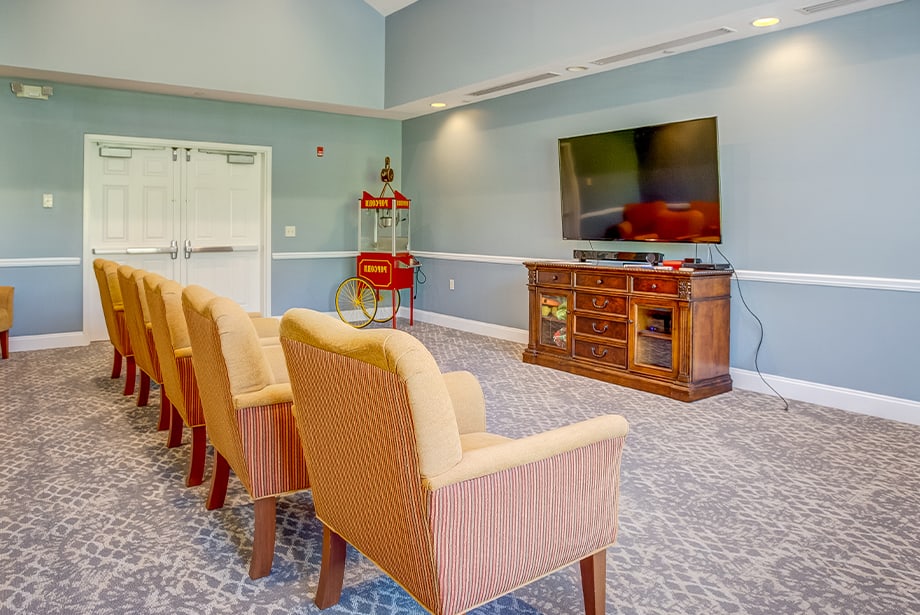Many people are intrigued by the comforts and assistance provided in an assisted living community, but they often question whether they are eligible. These types of communities typically consider 3 fundamental elements of life. Who can qualify for assisted living is usually based on:
- Age
- Overall health
- Support requirements
Certain qualifications may be unique to a particular community, but once these qualifications are met, most older adults are eligible to live in an assisted living community. If you’re interested in exploring a specific community for yourself or a loved one, the best thing to do is reach out for more information on requirements. Some communities may have different requirements if they provide more services than typical in assisted living.
What Is Assisted Living?
Assisted living is intended for older adults who cherish their independence but need help with daily chores. These settings offer assistance with activities such as grooming, medication management, and nutritious meals so residents can focus on living their lives without the burden of routine tasks.
Key Factors in Qualifying for Assisted Living
Most communities consider these 3 things in determining who is eligible.
Age Prerequisites
Most assisted living residences are designed for seniors, but specific age prerequisites may differ. Some communities welcome residents as young as 55, while others have minimum age limits of 62 or 65.
Overall Health
You typically need to have relatively stable health to qualify for an assisted living community. Chronic conditions like diabetes or arthritis can usually be managed in an assisted living environment, but residents should not require constant medical surveillance or skilled nursing.
A senior with extensive medical needs—like recurrent hospitalizations or round-the-clock monitoring—might be better suited to other specialized forms of care.
Support Requirements
One of the primary motives that many families consider a transition to assisted living is the requirement for help with daily living activities (ADLs). ADLs encompass crucial tasks such as:
- Bathing and grooming
- Dressing
- Preparing meals
- Managing medications
- Mobility and transferring (e.g., moving from a bed to a chair)
The compassionate associates in assisted living communities are equipped to provide support in these areas. This consistent care allows you to retain as much independence as possible while receiving the care you need.
Who May Not Be Suitable for Assisted Living
While assisted living is an excellent solution for many, it’s not for everyone. Here are some scenarios where someone might require a different level of care:
- Intensive medical needs: Assisted living is typically not an option for seniors who require constant medical attention.
- Memory impairments: Families of seniors who are severely affected by dementia or Alzheimer’s disease should typically explore memory care options from the start.
- Limited mobility: Severely limited mobility may require alternative care options.
Understanding these limitations can assist families in making the best decision for their loved ones and ensure they receive the appropriate care in the correct environment.

Steps to Becoming Eligible for Assisted Living
For seniors meeting the basic qualifications, the subsequent steps usually involve evaluations and preparations for a smooth transition into assisted living.
Health & Physical Evaluations
Most assisted living communities require a physical evaluation before admission to determine the resident’s health status and the required level of care. These evaluations assess medication management needs, cognitive abilities, mobility, vision and hearing, and mental health. This step guides the staff in developing a care plan tailored to the resident’s needs.
Medical History Examination
Prospective residents typically provide an in-depth medical history, which aids the care team in understanding their health background and ongoing needs. This documentation is crucial for creating a safe and supportive care environment.
Financial Preparations
Costs can differ significantly among assisted living communities, so families should explore payment options in advance. Many people use personal savings, long-term care insurance, or veterans’ benefits to cover the costs.
The Enclave of Franklin team can guide you through the financial planning process to make this transition as smooth as possible.
Assisted Living Benefits at The Enclave of Franklin
Choosing the right assisted living community is vital for you and your family. There are numerous advantages to assisted living with us, including:
- Personalized care plans: Every person is unique, so we develop customized care plans that evolve with your needs.
- Social and community engagement: Amid the challenges of loneliness that seniors often face, assisted living nurtures connectivity via group activities and various other events and experiences.
- Wellness programs and dining: From fitness sessions to chef-created meals, our community emphasizes health and well-being.
Transitioning to Assisted Living Smoothly
Assisted living can be an amazing solution that allows you or your loved one to continue living in a way that brings joy and meaning to each day. If you meet the qualifications, this long-term care option could be the perfect solution for your continued independence.
Take the first step today by contacting our compassionate team to book a tour at The Enclave of Franklin, where compassionate care meets gracious hospitality and the professional assistance you need.










